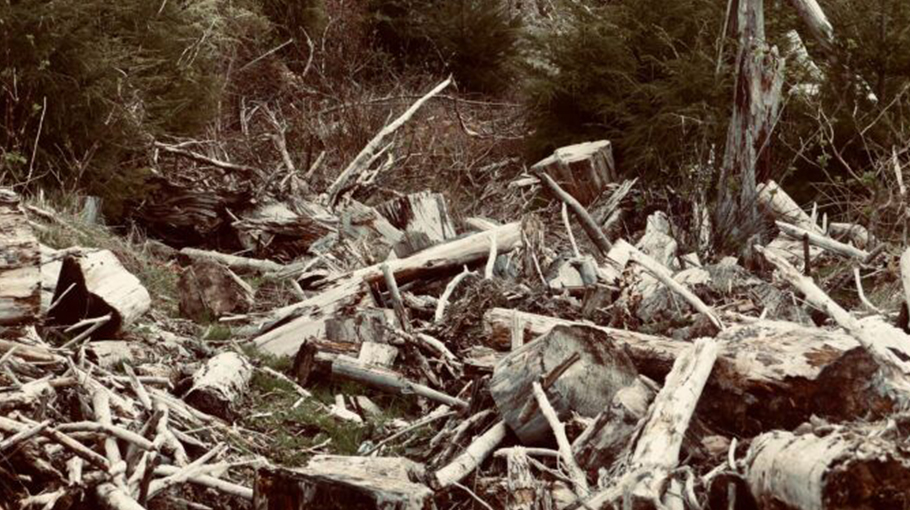Should harming the Planet be a crime? The case for ecocide laws

On December 3, 2019, the Pacific island state of Vanuatu made an audacious proposal: Make ecocide—the destruction of nature—an international crime. “An amendment of the Rome Statute could criminalize acts that amount to ecocide,” stated Ambassador of Vanuatu John Licht at the International Criminal Court’s (ICC) annual Assembly of States Parties in the Hague. He was speaking on behalf of his government at the assembly’s full plenary session. “We believe this radical idea merits serious discussion.”
Since then, the idea has become less radical: Amid the intensifying global climate emergency, interest has been mounting among nations and diverse stakeholders—spanning international bodies, grassroots organizations, and businesses—that ecocide be formally recognized as an international crime, joining the ranks of genocide, crimes against humanity, war crimes, and crimes of aggression, which are the four core international crimes established by the Rome Statute of the ICC. These crimes are not subject to any statute of limitations.
Environmental activists are pushing to elevate the concept of ecocide—literally, the “killing of the ecosystem”—as the fifth international crime to be adjudicated by the ICC. If it becomes a reality, those who commit environmental destruction could be liable to arrest, prosecution, and punishment—by a fine, imprisonment, or both.
The European Union, in February 2024, took a step in the direction of criminalizing cases that lead to environmental destruction and “voted in a new directive” that makes these crimes comparable to ecocide, according to Grist.
“The new law holds people liable for environmental destruction if they acted with knowledge of the damage their actions would cause.” The article adds that environmental crime is the “fourth most lucrative illegal activity in the world, worth an estimated $258 billion annually,” according to Interpol, and is only growing with each passing year.
Ecocide proponents want laws being pushed across various international organizations and government agencies to cover the most egregious crimes against nature, which could ultimately include massive abuses to the living environment, such as oil spills, illegal deforestation, deep-sea mining, mountaintop removal mining, Arctic oil exploration and extraction, tar sand extraction, and factory farming. British barrister and environmental lobbyist Polly Higgins defined ecocide as “extensive damage… to such an extent that peaceful enjoyment by the inhabitants of that territory has been or will be severely diminished.”
Healthy, functioning ecosystems provide a wide range of services to humanity and all life on Earth that are essential for the sustainable management and conservation of natural resources. These services can be categorized into four broad categories.
Provisioning Services: Healthy ecosystems provide food and water for humans and nonhuman animals, timber for building, and fiber for clothing and other industries.
Regulating Services: These services control conditions and processes, such as climate regulation, water purification, and pollination. Wetlands, for instance, purify water by filtering out pollutants, while forests help regulate climate by absorbing carbon dioxide.
Supporting Services: These services are necessary to produce all other ecosystem services. Examples include nutrient cycling, soil formation, and primary production. Soil organisms contribute to nutrient cycling, and the soil supports plant growth.
Cultural Services: Humanity obtains numerous non-material benefits from healthy ecosystems, including spiritual enrichment, cognitive development, reflection, recreation, and aesthetic experiences. Parks, beaches, and natural landscapes provide opportunities for recreation and relaxation, while cultural heritage sites offer historical and spiritual connections.
Ecosystem services are crucial for human well-being, economic prosperity, and societal development. To ensure that we continue to enjoy these services, we must protect ecosystems from the destructive harm of unsustainable exploitation. Ecocide laws can provide this protection.
Ukraine is seen as a “trailblazer” in pushing for recognizing ecocide crimes “within the realm of justice.” This thinking has especially gained momentum since Russia’s attack on the nation in February 2022, leading to the war on Ukraine being seen as a site of ecocide.
On April 16, 2024, environmental, climate, and energy experts gathered at Franklin Environmental Center at Hillcrest in Middlebury, Vermont, for a panel discussion titled “Criminalizing Ecocide: Lessons From Ukraine in Addressing Global Environmental Challenges.” The event centered on the significant ramifications of Russia’s environmental transgressions in Ukraine within the broader scope of global environmental justice.
The panelists—including Marjukka Porvali from the European Commission (a specialist in environmental policy with a focus on Ukraine); Jojo Mehta, the co-founder of Stop Ecocide; Bart Gruyaert, project director at Neo-Eco Ukraine; and Anna Ackermann, a climate and energy policy analyst—discussed establishing legal precedents to prosecute the gravest offenses against nature, promoting a cultural shift toward taking environmental issues seriously, and navigating a fair transition—while responsibly utilizing critical resources for reconstruction.
The Ukrainian government “has [also] argued for using…[international criminalization of ecocide] as a tool to hold individuals accountable for environmental destruction in wartime.”
Their call increased in the summer of 2023 when Russia destroyed the Kakhovka Dam, which not only killed people but also caused the spread of chemical pollution in the area.
In 2017, Higgins and Mehta founded the Stop Ecocide campaign. Overseen by the Stop Ecocide Foundation, a charitable organization based in the Netherlands, the campaign is the only global effort to exclusively focus on the establishment of ecocide as an international crime to prevent further devastation to the Earth’s ecosystems.
“Protecting the future of life on Earth means stopping the mass damage and destruction of ecosystems taking place globally,” states the Stop Ecocide Facebook page. “And right now, in most of the world, no one is held responsible.”
Reynard Loki is a writing fellow at the Independent Media Institute, where he serves as the editor and chief correspondent for Earth
Source: CounterPunch




